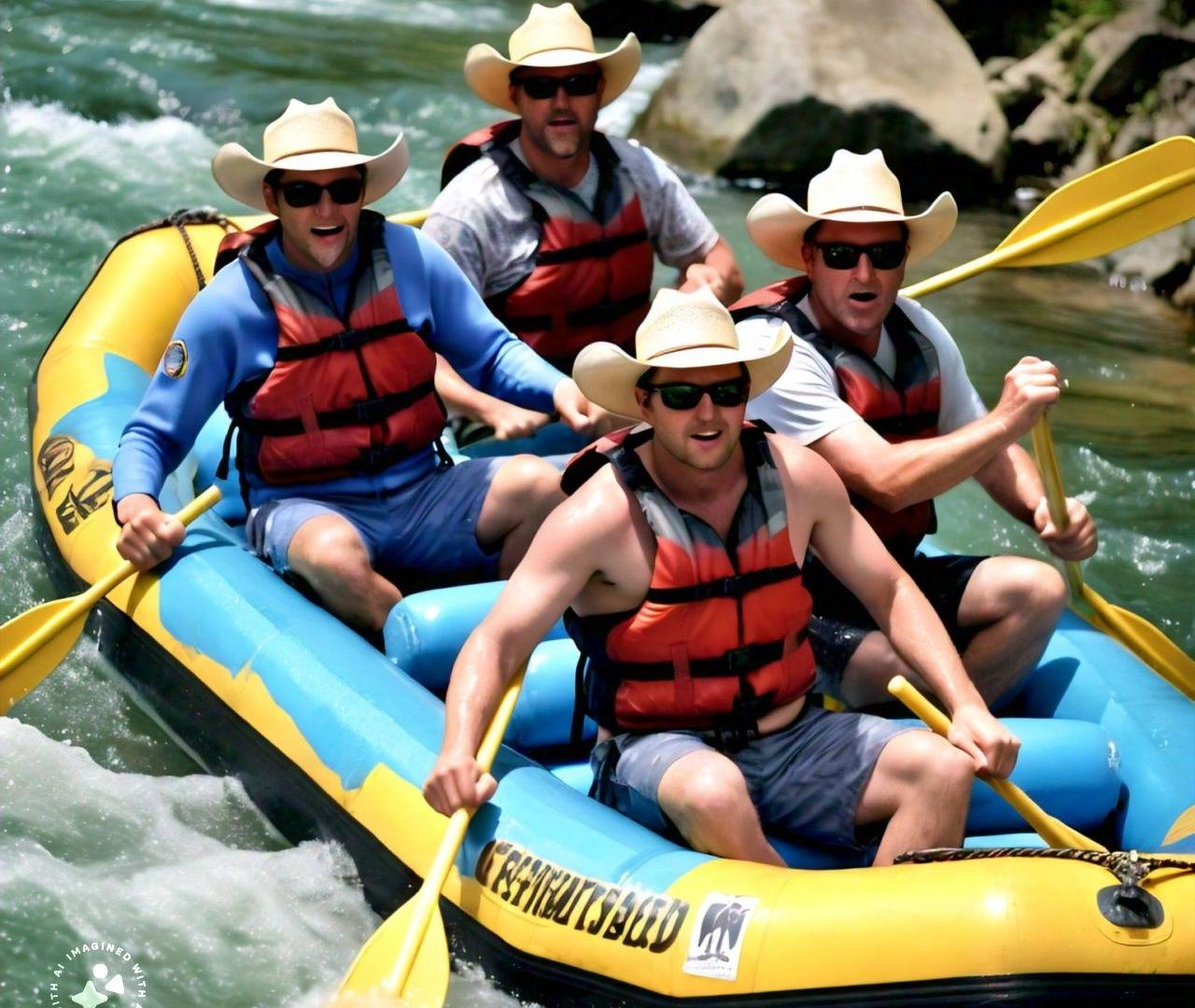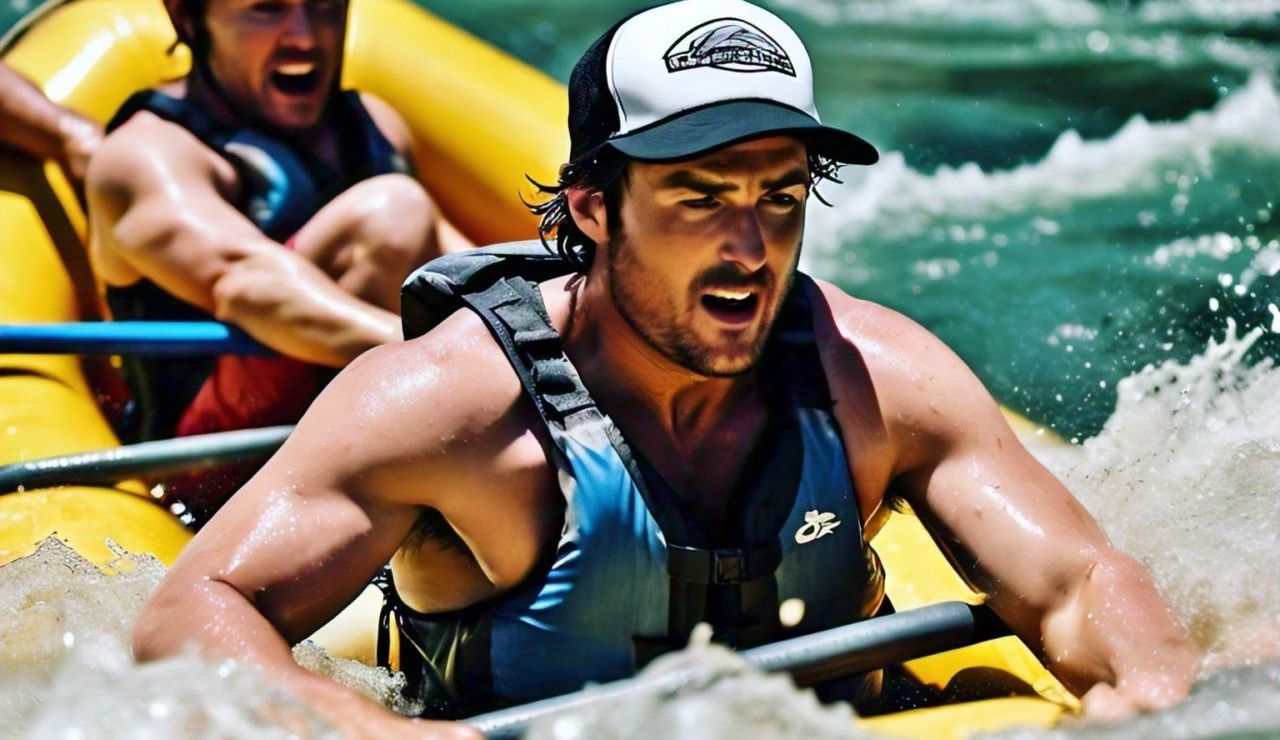Rafting is an adventure and a sport that offers an incredibly unique combination of excitement and serenity. Thus, it is also perfect for holistic wellness due to its numerous physical and mental benefits. In addition to adrenaline-filled rapid riding, it strengthens cardiac fitness and muscle tone and promotes a confident mind. Whitewater rafting is all about riding a tide in a full-sized raft with others and enjoying nature and scenery while getting a great workout
White-Water Rafting Can Strengthen Your Self-Esteem And Develop Your Willpower
Whitewater rafting resembles an outdoor adventure that involves paddling an inflatable boat down a river. Its hallmark is its unpredictable and exciting nature, which may be either smooth, relaxing, or highly entertaining. There are different intensities. Still, paddling in a team and being coordinated is a significant part of rafting since participants must synchronize their paddling and avoid bumps.
Psychologically, whitewater rafting is an effective way to reduce stress because of the soothing influence of water and the natural world. Next time you consider a family trip or a weekend getaway with friends, consider this adrenaline rush while breathing fresh air and enjoying some scenic locations.
Physical Health Benefits
Rafting does not simply live under the reputation of intense adrenaline rush; it also offers substantial health benefits beyond the sporting aspect. It benefits cardiovascular fitness, strength building, flexibility development, and weight control.
Furthermore, river rafting offers low-impact workouts for people from different fitness categories. For many, it is a way to explore nature and improve their day-to-day lives. For example, the natural environments surrounding you help with stress management.
Cardiovascular Fitness

Rafting is considerably beneficial for heart health through its perfect cardiovascular exercise. Paddling through water requires unceasing physical activity and workouts to lift the heart rate and boost blood circulation. This long-term aerobic training remarkably increases heart muscle strength and endurance and lowers blood pressure. Moreover, the strenuous exertion required in maneuvering through rapids stimulates overall cardiovascular fitness, resulting in better health and a stronger cardiovascular system.
Flexibility and Balance
The stability of the raft and the ability to achieve balance are fundamental for a safe and pleasant rafting trip. The raft goes through an incredible journey, and as it moves from one type of water condition to another, from calm water to turbulent rapids, paddlers need to be ready to adjust their positions every time to balance the raft.
Such changes are good in the long run, as they provide you with the appropriate balance and the capability to remain upright and prevent you from being capsized. It involves core strength and coordination. Furthermore, dealing with constant shifts in positions and reacting instantly to the changes in the water flow also nurtures the body’s flexibility in the legs and hips.
Strength and Endurance

Paddling reciprocates through the arms and shoulder muscles, creating the whole-body upper-body workout. As the pull holds the water, those muscles inside your back, particularly the lats and trapezius, are continuously at work. The deep core muscles, including abdominal ones and obliques, also work in the team to hold balance and stability on a raft, leading to a versatile workout to improve overall health. The deep core muscles, including the abdominal and oblique muscles, also rear their heads in performing this job
When paddling, your body muscles will sustain long periods of activity, adapting to the work of constant movement and becoming stronger. The increased body strength improves your ability to sustain vigorous physical workouts and carry out prolonged physical activities without getting tired. With frequent rafting practice, you can develop great endurance and be in better shape for more strenuous physical activities and higher energy targets.
Mental Health Benefits
Unlike rafting, people are so involved in everyday struggles that they cannot slowly take time for themselves to reconnect with nature. Water is generally peaceful, and the paddle beat helps accomplish a calmer disposition successfully. These mental health benefits of white water rafting are obvious – rafting allows the stress to dissipate and brings about a state of relaxation. When rafters spend more extended periods of paddling, they are forced to approach the crew work paddling with a high degree of focus, thus allowing them to stay tuned to the task at hand.
Mood Improvement and Happiness
Rafting improves mood and happiness by triggering the release of endorphins and dopamine, neurotransmitters associated with feelings of pleasure and reward. These are heightened through the fun and exhilarating experience of navigating rapids and the sense of accomplishment from overcoming challenges on the water.
Aside from overall mental health benefits and self-esteem, rafting significantly increases self-confidence because it allows people to face fears, overcome problems, and work together. The experience engenders a feeling of accomplishment and empowerment in the face of the stream's flow.
Social and Emotional Benefits

Beyond its physiological and psychological benefits, rafting has another factor: it is much more than an extreme sport; hence, a rafter can get many of these benefits. Through their experiences rafting down the rapids and trying to keep afloat in the currents, they establish deeper relationships among rafters and family bonding, creating a sense of camaraderie and teamwork.
The connections formed through these standard ups and downs lead to lasting memories that help to promote friendship and social interactions in everyday life as well as a person's emotional well-being, both on and off the water.
Conclusion
Stress rafting is a term coined to showcase the numerous advantages of outdoor rafting and what this sport can do for your mental health. For many, it's an outdoor activity that helps you leave all your worries behind, allowing you to learn a new skill, maintain balance, and explore the great outdoors.
Contact Advantage Grand Canyon today to search for rafting trips from all the top 15 outfitters in one place and book your next Grand Canyon rafting trip!








